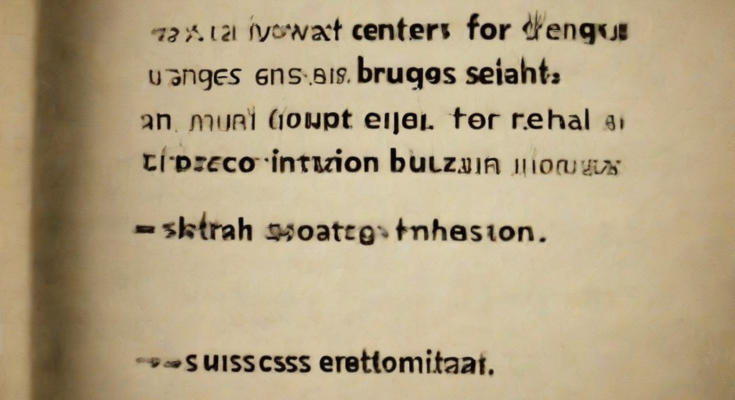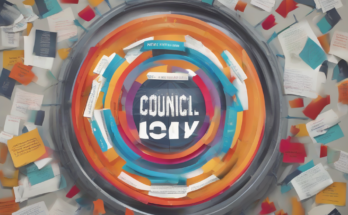Finding Hope and Healing: A Comprehensive Guide to Drug Rehab Centers
The decision to seek help for drug addiction is a monumental step towards recovery and a brighter future. Understanding the intricacies of drug rehabilitation centers is crucial in navigating this challenging journey. This guide provides a comprehensive overview of various aspects of drug rehab, empowering individuals and their loved ones to make informed choices.
Types of Drug Rehab Centers
Drug rehabilitation centers offer a range of programs and settings tailored to individual needs and preferences. Choosing the right type of center is paramount for successful recovery.
-
Inpatient (Residential) Rehab:
Provides 24/7 care in a structured environment. Ideal for individuals requiring intensive support and detoxification.
-
Outpatient Rehab:
Offers flexible scheduling, allowing individuals to attend therapy sessions and meetings while maintaining other responsibilities. Suitable for individuals with less severe addictions or those who have completed inpatient treatment.
-
Partial Hospitalization Programs (PHP):
Intensive outpatient programs that involve several hours of treatment daily, combining the benefits of both inpatient and outpatient care.
-
Intensive Outpatient Programs (IOP):
Less intensive than PHP, typically involving fewer hours of treatment per week.
-
Detoxification Centers:
Specialized facilities that manage the initial withdrawal symptoms associated with drug addiction. Often a precursor to inpatient or outpatient rehab.
-
Sober Living Homes:
Transitional living arrangements providing a supportive and drug-free environment after completing rehab. They often incorporate community support and accountability.
Factors to Consider When Choosing a Rehab Center
Selecting the right rehab center is a crucial decision. Several factors should be carefully considered:
-
Accreditation and Licensing:
Ensure the center is accredited by reputable organizations like the Joint Commission or CARF (Commission on Accreditation of Rehabilitation Facilities).
-
Types of Addictions Treated:
Verify the center’s expertise in treating the specific substance(s) of concern.
-
Treatment Modalities Offered:
Explore the therapeutic approaches used, such as Cognitive Behavioral Therapy (CBT), Dialectical Behavior Therapy (DBT), motivational interviewing, and 12-step programs.
-
Staff Qualifications:
Investigate the credentials and experience of the medical and therapeutic staff.
-
Treatment Duration:
Determine the length of stay required based on the severity of the addiction and individual needs.
-
Cost and Insurance Coverage:
Inquire about the cost of treatment and explore insurance options for coverage.
-
Location and Amenities:
Consider the proximity to family and support systems, and evaluate the center’s environment and amenities.
-
Aftercare Planning:
Assess the center’s aftercare planning process, including support groups, relapse prevention strategies, and ongoing therapy options.
-
Client Testimonials and Reviews:
Research client testimonials and reviews to gain insights into the center’s effectiveness and client experience.
Treatment Modalities in Drug Rehab
Drug rehabilitation centers employ various therapeutic modalities to address the physical, psychological, and social aspects of addiction.
-
Cognitive Behavioral Therapy (CBT):
Helps individuals identify and change negative thought patterns and behaviors contributing to addiction.
-
Dialectical Behavior Therapy (DBT):
Teaches coping skills to manage intense emotions and improve interpersonal relationships.
-
Motivational Interviewing:
A collaborative approach that motivates individuals to make positive changes in their lives.
-
12-Step Programs:
Support groups based on the principles of Alcoholics Anonymous (AA) and Narcotics Anonymous (NA), emphasizing peer support and spiritual growth.
-
Medication-Assisted Treatment (MAT):
Uses medications in conjunction with therapy to reduce withdrawal symptoms, cravings, and relapse risk.
-
Family Therapy:
Involves family members in the treatment process to improve communication and family dynamics.
-
Individual Therapy:
Provides one-on-one sessions with a therapist to address underlying issues contributing to addiction.
-
Group Therapy:
Offers a supportive environment where individuals can share their experiences and learn from others.
The Detoxification Process
Detoxification is the initial phase of treatment, focusing on medically managing withdrawal symptoms. This process can be physically and emotionally challenging, and medical supervision is essential.
-
Medically Supervised Detox:
Crucial for managing potentially dangerous withdrawal symptoms, especially with opioids, alcohol, and benzodiazepines.
-
Withdrawal Symptoms:
Vary depending on the substance, but can include anxiety, cravings, nausea, vomiting, seizures, and hallucinations.
-
Medication for Detox:
Specific medications can help manage withdrawal symptoms and reduce cravings.
-
Duration of Detox:
The duration of detoxification varies depending on the substance and individual factors.
Relapse Prevention and Aftercare
Relapse is a common occurrence in addiction recovery, and a robust aftercare plan is critical for long-term success.
-
Relapse Prevention Planning:
Developing strategies to identify and manage triggers and high-risk situations.
-
Continuing Therapy:
Ongoing therapy and support groups are essential for maintaining sobriety.
-
Support Groups:
AA, NA, and other support groups provide a sense of community and accountability.
-
Medication Management:
Continuing medication as prescribed, if necessary.
-
Healthy Lifestyle Changes:
Adopting healthy habits, including exercise, nutrition, and stress management techniques.
-
Building a Support Network:
Surrounding oneself with supportive friends, family, and mentors.
Finding Help and Resources
Seeking help for drug addiction is a courageous step. Numerous resources are available to assist individuals and their loved ones.
-
SAMHSA National Helpline:
A confidential, free, 24-hour-a-day, 365-day-a-year treatment referral and information service (1-800-662-HELP (4357)).
-
Substance Abuse and Mental Health Services Administration (SAMHSA):
Provides information and resources on substance abuse treatment.
-
National Institute on Drug Abuse (NIDA):
Offers research-based information on drug addiction and treatment.
-
Local Treatment Centers and Hospitals:
Contact local hospitals and treatment centers for information on available services.
-
Insurance Providers:
Check with your insurance provider to determine coverage for substance abuse treatment.
Remember, recovery from drug addiction is possible. With the right support and treatment, individuals can achieve long-term sobriety and lead fulfilling lives.

